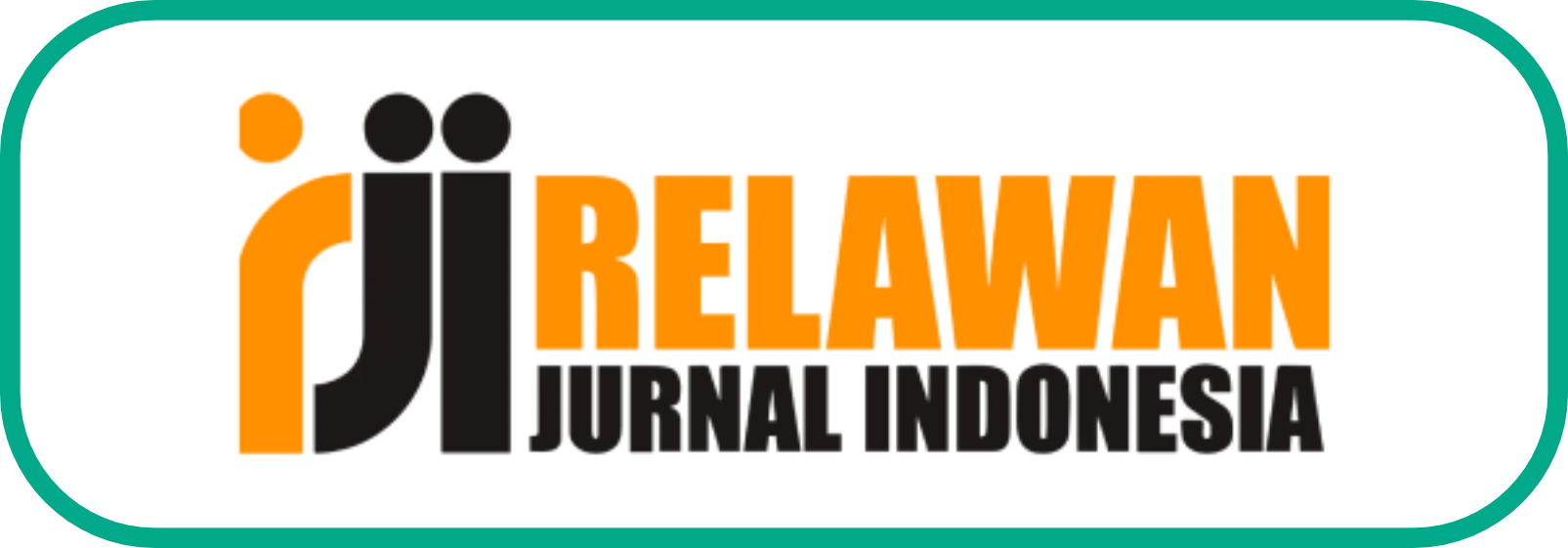AGE AND PARITY RELATIONSHIP WITH MOTHER MATERNITY EVENT INTRAUTERINE FETAL DEATH (IUFD) ARIFIN ACHMAD HOSPITAL PROVINCE IN THE YEAR 2013 RIAU
Sari
Indonesia is the fourth largest country in the world after China. In response to this, the
government has promoted a Family Planning Program (KB) which is a basic and primary
preventive health service to create a healthy and prosperous family. Based on the KB
Recapitulation Program of the Pekanbaru City Health Office in October-December 2011
from 19 Puskesmas, the highest use of implants was at Harapan Raya Health Center which
was actually 245 acceptors, while the lowest Puskesmas used Implants at the Melur Health
Center which is 0 acceptors. WUS with the selection of Implant contraceptives at the
Melur Pekanbaru Health Center in 2012. This type of research is quantitative, with
analytical design. The population in this study were all WUS who used KB as many as 165
acceptors. Sampling was carried out using 44 WUS Accidental Sampling Techniques. The
data used were primary data. This research was carried out at the Melur Health Center on
March 25-April 20, 2012. This research instrument used a questionnaire that had been
tested for validity and reliability. Data processing by Editing, Coding, Processing, and
Cleaning. Data analysis was carried out by univariate and bivariate methods. Results of the
study After statistical tests on the knowledge of WUS with the selection of implants
obtained results (P) 0.814> 0.05 = Ha was rejected and it can be concluded that there is no
relationship between knowledge of WUS with the selection of implants. WUS education
with implant selection results (P) 0.861> 0.05 = Ha rejected and it can be concluded that
there is no relationship between WUS education and implant selection. Thus it is expected
that health workers to further improve in providing clear information to the community,
especially in women of childbearing age so as not to reduce their motivation to use implant
contraceptives.
Keywords : Knowledge, Education, Implant Selection
Teks Lengkap:
PDFReferensi
Agus. 2010. Psikologi Pendidikan. http://Agus.blogchandra.com//.
Arum, Dyah Noviawati S., Sujiyatini. 2011. Panduan lengkap Pelayanan KB terkini.
Jogjakarta: Nuha Medika.
Dinas Kesehatan Kota Pekanbaru. 2011. Rekapitulasi Kegiatan Program KB Dinas
Kesehatan Kota Pekanbaru. Pekanbaru
Erfandi. 2009. Pengetahuan dan faktor-faktor yang mempengaruhi. http://erfandi.com//
(30 Januari 2012)
Glasier, A. 2005. Keluarga berencana dan dan kesehatan reproduksi. Jakarta: EGC.
Heru. 2011. Faktor-faktor yang mempengaruhi hasil belajar.http://heru.id.com/2011/05.
Hidayat, A. 2007. Metode Penelitian Kebidanan dan Tekhnik Analisa Data. Jakarta:
Salemba Medika.
Hidayat, A. 2011. Metode Penelitian Kebidanan dan Tekhnik Analisa Data. Jakarta:
Salemba Medika.
Hidayati, Ratna. 2009. Metode dan Teknik Penggunaan Alat Kontrasepsi. Jakarta: Salemba
Medika.
Nasir, Rahmat Yuliadi. 2011. Ledakan Penduduk Dengan Alat Kontrasepsi.
http://politikana.com/baca/2011/07/08/cegah-ledakan-penduduk-dengan-alatkontrasepsi
(12 Maret 2012)
Notoatmodjo, Soekidjo. 2003. Ilmu Kesehatan Masyarakat. Jakarta: Rineka Cipta.
Notoatmodjo, Soekidjo. 2003. Pendidikan dan Perilaku Kesehatan. Jakarta: Rineka Cipta.
Notoatmodjo, Soekidjo. 2005. Metodologi Penelitian Kesehatan Edisi II. Jakarta: Rineka
Cipta.
Notoatmodjo, Soekidjo. 2007. Kesehatan Masyarakat Ilmu dan Seni. Jakarta: Rineka
Cipta.
Notoatmodjo, Soekidjo. 2010. Metodologi Penelitian Kesehatan. Jakarta: Rineka Cipta.
Nursalam. 2003. Konsep dan Penerapan Metodologi Penelitian Ilmu Keperawatan.
Jakarta: Salemba Medika.
Nursalam. 2008. Konsep dan Penerapan Metode Penelitian Untuk Keperawatan. Jakarta:
Salemba Medika
Pikas. 2007. Keluarga berencana.http://www.pikas.BKKBN.org/news. (18 maret 2008).
Pinem, Saroha. 2009. Kesehatan Reproduksi dan Kontrasepsi. Jakarta: Trans Info Media
Saifuddin, A.B., A. Biran, Lu, E.R. 2003. buku Panduan Praktis Pelayanan Kontrasepsi.
Jakarta: Yayasan Bina Pustaka Sarwono Prawirohardjo.
Sibagariang, E.S., Juliane, Rismalinda, S. Nurjannah. 2010. Metodologi Penelitian untuk
Mahasiswa Diploma Kesehatan. Jakarta: CV. Trans Info Media.
Suratun., M. Sri, Hartini. T, Rusmiati, P. Saroha. 2009. Kesehatan Reproduksi dan
Pelayanan Kontrasepsi. Jakarta: Trans Info Media.
Susilawati. 2009. Tingkat Pengetahuan Ibu tentang Kelemahan Kontrasepsi Suntik pada
Akseptor KB Suntik Desa Laut Dendang Kecamatan Pecut, Sei Tuan. Program
Sarjana FKM USU (Universitas Sumatera Utara). Medan
Syafrudin., Rusmartini, M. Sri. 2009. Praktek Kebidanan Komunitas dengan Pendekatan
PKMD. Jakarta: CV. Trans Info Media.
Tirtarahardja, U., La sulo, L.S. 2005. Pengantar Pendidikan (edisi revisi). Jakarta: PT
Rineka Cipta.
Viviroy. 2008. Motivasi IUD. http://indoskripsi.com/2008/09.
Wiknjosastro, Hanifa. 2005. Ilmu Kandungan. Jakarta: Yayasan Bina Pustaka Sarwono
Prawiroharjo
DOI: https://doi.org/10.33559/mi.v12i10.1036
Article Metrics
Sari view : 126 timesPDF - 150 times
Refbacks
- Saat ini tidak ada refbacks.
##submission.copyrightStatement##
INDEXED BY :
Lembaga Penelitian & Pengabdian Masyarakat (LPPM). Universitas Muhammadiyah Sumatera Barat
Jl. Pasir Kandang No.4, Pasie Nan Tigo, Kec. Koto Tangah, Kota Padang, Sumatera Barat 25586.
Email : lppmumsb@gmail.com
 This work is licensed under a Creative Commons Attribution-ShareAlike 4.0 International License.
This work is licensed under a Creative Commons Attribution-ShareAlike 4.0 International License.
















